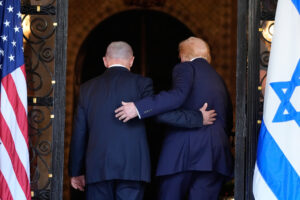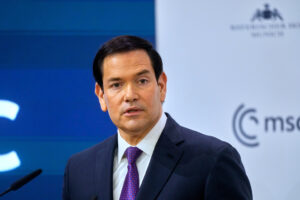Paris Attacks: A new era in French politics?

A memorial outside the Carillon restaurant in Paris on Sunday, one of the sites of the attacks on Friday. Picture by Ian Langsdon | European Pressphoto Agency

Numbers remain uncertain and suspects are still being apprehended, but one thing is clear, France, and people around the world, are in shock. The terrorist attacks that took the lives of at least 129 people in the French capital and injured another 352 on Friday will have some serious consequences, domestically but also for France’s foreign policy and within the international community. These tragic events mark a new era in French politics and, on a broader scale, have implications for the Syrian conflict, which started in 2011 and has been treated with indecisiveness and dithering.
As world leaders convene in Vienna to discuss the future of Syria (without the presence of the Syrian National Coalition), French President François Hollande is calling this attack an “act of war.” He has also declared a state of emergency and affirmed that France would retaliate without pity. Little choice is left for those who have taken on the fight against religious extremism in Syria since the beginning of ISIS’ rise, and it is clear that airstrikes are no longer sufficient. Since Hollande has been thoroughly against putting troops in the ground in Syria, any move to do so would signal a drastic change in the president’s foreign policy. This in turn would shape other countries’ involvement in the conflict.
The leaders of the coalition likely to form will need to be more cautious than ever in respecting what the UN now calls the “protection of civilians.” If France amplifies its presence in Syria, it will have to work hard in cooperation with the fighting parties to ensure civilians are protected, through a no-bomb zone or other methods. The Syrian Conflict has displaced more than 4.2 million people, who are now in great majority living in camps across the Middle East, and at least 200,000 have been killed in the 4-year-old conflict. An increase in the influx of Syrian refugees coming to Europe caused what international media called a “refugee crisis” earlier this year, with some in Europe speaking against accepting refugees. Most notably, Hungarian President Viktor Orban declared Muslims refugees ought to be rebuked “to keep Europe Christian.”
France’s Defense Budget has decreased by 20 percent in the past 25 years (accounting for inflation). In 2014, France’s defense budget represented 2.2 percent of its GDP, compared to 3.5 in the US, and 4.5 in Russia (the only country whose defense budget has increased as a portion of its GDP in the past 5 years). And while the Defense Minister has clearly acknowledged the rising threat of extremism, especially since the Charlie Hebdo Attacks in January 2015, anti-terrorism laws in France are still generally more lax than those across the Atlantic. The French are known for their value of liberty, refusing excessive government overview of their private lives. As reported by Le Monde, a French intelligence agency had flagged one of the perpetrators of the recent atrocity as being radicalized when in 2010 he attended a conference in Chartres led by a radicalized Islamist. Yet they hadn’t had any legal basis to arrest him, or even question him. Now the French are likely to soften their views on the individual privacy they hold so dear, ushering in a new era in France.
The coordination and planning of these attacks shows the great organizational lengths ISIS has reached. This is clear in the number and scale of terrorist attacks that have been attributed to ISIS in the past year. In July 2015, a law passed in France allowing for the tracking of digital and telephone communications of individuals identified by the secret services. As increased attacks on civilians in their day-to-day lives, as opposed to large-scale assaults, are the most imminent threat going forward, it is almost certain that the French Government will pass new laws. And other traditionally surveillance-averse EU countries are likely to support such moves and increase cooperation efforts. Going forward, the changes may well transform the way the EU on whole approaches counterterrorism. The challenge will now be finding the right balance between democratic values and a more intrusive government to keep citizens safe.
Far right wing parties in Europe, like Marine Le Pen’s Front National in France, will without a doubt gain traction and capitalize on the tragedy. In her public address after the attacks, Le Pen said, “Finally, fundamentalist Islam must be wiped out. France must ban Islamist organizations, close radical mosques, and kick out foreigners who are preaching hatred on our soil, as well as illegal immigrants who have nothing to do here.” She is using the opportunity to claim that all French citizens holding dual citizenship should be banned from France and see their French citizenship revoked. Her inflammatory rhetoric aims to further strengthen her stance on France’s immigration policy. But an increased adhesion to Marine’s party would prove disastrous for France and for the unresolved refugee crisis.
While we wait for our leaders to decide on an avenue for addressing this storm, we must call on them to act for the greater good. Not just for the sake of the French, but also for the sake of the Lebanese, the Turkish, the Kenyans, and the list goes on. But especially for the sake of the Syrian people, who have been living this horror for the past three years. As French think-tank founder Xavier Alberti said on Twitter while the events were unfolding, “It took one hour in the Paris attacks to understand why some families jump on inflatable boats to escape their country.”
Geraldine is an M.A. candidate in International Relations at New York University. She graduated with a BA from McGill University with a focus on International Development Studies and Political Science. Her main area of interest is Southeast Asia having grown up in Malaysia.




